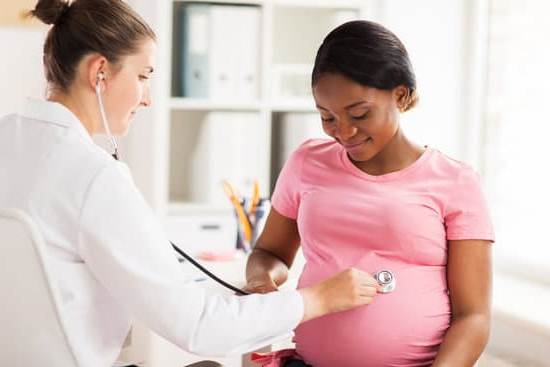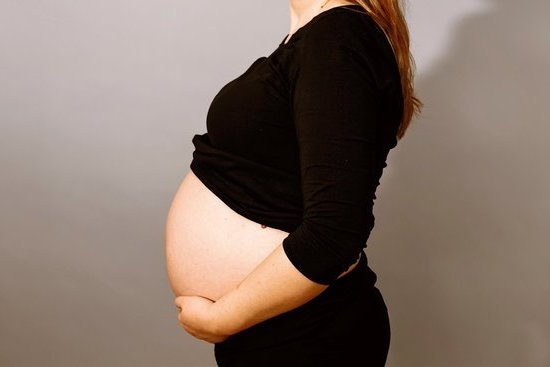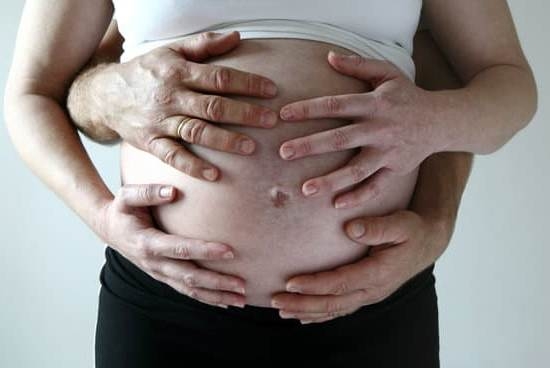Is breaking out a sign of pregnancy? This is a common question that many women ask when they notice changes in their skin during the early stages of pregnancy.
While some may attribute these breakouts to hormonal fluctuations, it is important to understand the factors at play and dispel any misconceptions about pregnancy symptoms. In this article, we will delve into the relationship between pregnancy and skin issues, shedding light on why breakouts can occur and how to effectively manage them.
Pregnancy brings about a multitude of changes in a woman’s body, including significant shifts in hormone levels. These hormonal changes can have varying effects on the skin, leading to conditions such as acne, dryness, or excess oil production. It is crucial to recognize that breakouts during pregnancy are not uncommon and can be attributed to the surge of hormones like progesterone and estrogen.
While many women experience clearer skin during pregnancy due to increased blood flow and higher hydration levels, others may notice an increase in breakouts. Understanding the different types of skin changes and breakouts that can occur during pregnancy is essential in distinguishing between regular acne and pregnancy-related skin issues. By gaining insights into these distinctions, expecting mothers can better navigate through their skincare routines and seek appropriate treatment if necessary.
Understanding Hormonal Changes During Pregnancy and Their Effects on the Skin
During pregnancy, hormonal changes play a significant role in the development of skin issues. One of the most common hormonal changes that can lead to skin breakouts is an increase in androgen levels. Androgens are hormones that stimulate the sebaceous glands in the skin, leading to excess oil production. This excess oil can clog pores and result in acne flare-ups, making breakouts a common occurrence during pregnancy.
Types of Skin Changes During Pregnancy
There are various types of skin changes that pregnant women may experience, aside from breakouts. Some women may notice darkening or discoloration of the skin, known as melasma or “pregnancy mask.” Stretch marks, also called striae gravidarum, may appear on the abdomen, breasts, or thighs due to rapid weight gain and stretching of the skin. Additionally, some women may develop itchy red bumps on their abdomen or extremities known as pruritic urticarial papules and plaques of pregnancy (PUPPP).
Differentiating Between Regular Acne and Pregnancy-Related Breakouts
It is essential to differentiate between regular acne and pregnancy-related breakouts to determine the best course of action for treatment. While regular acne is more commonly found on the face, chest, and back, pregnancy-related breakouts tend to occur on the cheeks and jawline.
Additionally, pregnancy-related breakouts are often characterized by hormonal fluctuations and typically improve after childbirth. If you are unsure whether your breakouts are related to pregnancy or not, it is always best to consult with a healthcare provider for proper diagnosis and treatment recommendations.
Different Types of Skin Changes and Breakouts That Can Occur During Pregnancy
During pregnancy, the body undergoes a multitude of changes, both internally and externally. One of the most common external manifestations of these changes is skin issues, including breakouts. It is important to note that not all breakouts during pregnancy are necessarily indicative of a hormonal shift. However, hormonal changes play a significant role in the skin’s condition during this time.
Here are some types of skin changes and breakouts that can occur during pregnancy:
- Acne: Hormonal fluctuations can lead to increased oil production, leading to clogged pores and acne flare-ups.
- Melasma: Also known as “the mask of pregnancy,” melasma causes dark patches or hyperpigmentation on the face due to hormonal changes.
- Skin tags: Often appearing in areas where skin rubs together, such as the neck or underarms, these benign growths can increase during pregnancy.
- Spider veins: The increased blood volume and pressure during pregnancy can result in spider veins, commonly seen on the legs.
It is essential for pregnant individuals to understand that these skin changes are typically temporary and should improve postpartum. However, proper skincare and lifestyle habits can help manage these issues effectively while supporting overall skin health throughout pregnancy.
- Avoid harsh chemicals in skincare products
- Stay hydrated by drinking plenty of water
- Eat a balanced diet rich in fruits, vegetables, and antioxidants
By incorporating these practices into your daily routine, you can support your skin’s natural balance and minimize the impact of hormonal fluctuations that may lead to breakouts during pregnancy. If you have concerns about severe or persistent skin issues, it is recommended to consult with a dermatologist or healthcare provider for personalized advice and treatment options.
How to Differentiate Between Regular Acne and Pregnancy-Related Breakouts
During pregnancy, changes in hormonal levels can often lead to various skin issues, including breakouts. It is important to understand the difference between regular acne and pregnancy-related breakouts in order to effectively manage and treat them. Here are some key factors to consider when trying to differentiate between the two:
- Timing: Pregnancy-related breakouts typically occur during the first trimester when hormonal changes are most pronounced. If you notice sudden breakouts early in your pregnancy, it could be a sign of hormonal fluctuations rather than regular acne.
- Location: While regular acne can appear anywhere on the face or body, pregnancy-related breakouts often concentrate around the jawline, chin, and cheeks. These areas are more prone to hormonal acne due to increased sebum production during pregnancy.
- Appearance: Pregnancy-related breakouts may present as small red bumps or pustules rather than traditional blackheads or whiteheads. The texture and size of the blemishes can help distinguish between regular acne and hormone-induced breakouts.
Understanding these distinctions can help pregnant individuals better navigate their skincare routines and seek appropriate treatment if needed. It is essential to remember that every pregnancy is unique, and skin changes may vary from person to person. If you are unsure about the cause of your breakouts or if they are causing significant discomfort, consulting a dermatologist or healthcare provider is always recommended.
Ultimately, knowing how to identify pregnancy-related breakouts is crucial for implementing targeted skincare strategies and alleviating skin issues during this sensitive time. By paying attention to timing, location, and appearance of the breakout, individuals can take proactive steps towards managing their skin health effectively throughout their pregnancy journey.
Skincare Tips for Managing Pregnancy-Related Breakouts Effectively
During pregnancy, hormonal changes can lead to skin breakouts. It is not uncommon for women to experience acne, oiliness, or dryness during this time. These changes are a result of increased levels of androgen hormones which can cause the sebaceous glands to produce more oil, leading to clogged pores and breakouts. Additionally, fluctuating hormone levels can also affect skin pigmentation, making some areas darker or more prone to hyperpigmentation.
To effectively manage pregnancy-related breakouts, it is essential to establish a consistent skincare routine. Opt for gentle cleansers that are specifically formulated for sensitive skin or designed to treat acne. Avoid harsh products that could further irritate the skin. Use non-comedogenic moisturizers to keep the skin hydrated without clogging pores. Incorporating products with ingredients like glycolic acid or salicylic acid can also help in treating acne by exfoliating dead skin cells and unclogging pores.
In addition to your skincare routine, maintaining a healthy diet and staying hydrated play crucial roles in managing skin breakouts during pregnancy. Consuming a well-balanced diet rich in fruits, vegetables, whole grains, and lean proteins can promote clear skin by providing essential nutrients and antioxidants. Drinking plenty of water helps flush out toxins from the body and keeps the skin hydrated from within. Remember that what you put into your body reflects on the outside as well.
| Skincare Tips | Effectiveness |
|---|---|
| Establish a consistent skincare routine | Helps in managing breakouts effectively |
| Use gentle cleansers and non-comedogenic moisturizers | Prevents further irritation and keeps skin hydrated |
| Maintain a healthy diet and stay hydrated | Promotes clear skin from within by providing essential nutrients |
The Role of Diet and Hydration in Maintaining Clear Skin During Pregnancy
During pregnancy, many women experience changes in their skin, including breakouts and acne. These skin issues are often attributed to hormonal fluctuations that occur during this time. However, it’s essential to understand that not all breakouts are necessarily a sign of pregnancy. Regular acne can also be common and may not be directly related to being pregnant.
Despite this, there is a connection between diet, hydration, and skin health during pregnancy. Consuming a balanced diet that is rich in nutrients such as vitamins A, C, and E can support healthy skin by promoting collagen production and reducing inflammation. Foods like fruits, vegetables, nuts, and seeds are excellent choices for maintaining clear skin. Staying hydrated is also crucial as water helps flush out toxins from the body and keeps the skin hydrated from within.
In addition to diet and hydration, maintaining good skincare habits is vital for managing breakouts during pregnancy. Using gentle cleansers suitable for sensitive skin, avoiding harsh chemicals or exfoliants, and incorporating moisturizers designed for pregnant women can help keep skin issues at bay. Consulting with a dermatologist or healthcare provider for personalized advice on skincare products safe for use during pregnancy is also recommended to ensure the best outcomes for your skin health.
| Dietary Tips to Maintain Clear Skin | Hydration Recommendations |
|---|---|
| Consume foods rich in vitamins A, C, and E | Drink plenty of water throughout the day |
| Incorporate fruits, vegetables, nuts, and seeds into your meals | Avoid excessive consumption of sugary or caffeinated beverages |
| Avoid processed foods high in trans fats or artificial ingredients | Opt for herbal teas or infused waters instead of sugary drinks |
Home Remedies and Natural Treatments for Pregnancy-Related Breakouts
During pregnancy, many women may experience skin breakouts due to hormonal changes. These breakouts can be frustrating and uncomfortable, but there are natural remedies and treatments that can help manage them effectively. It is important to remember that not all skin breakouts are a sign of pregnancy, so it is essential to differentiate between regular acne and pregnancy-related skin issues.
Tea Tree Oil
One natural treatment for pregnancy-related breakouts is tea tree oil. Known for its antibacterial properties, tea tree oil can help reduce inflammation and prevent further breakouts. It is important to dilute tea tree oil with a carrier oil before applying it to the skin, as it can be irritating when used in its pure form.
Oatmeal Masks
Oatmeal masks are another great option for managing pregnancy-related breakouts. Oatmeal has anti-inflammatory properties that can soothe irritated skin and reduce redness. You can easily make your own oatmeal mask by mixing oats with water or milk until it forms a paste, then applying it to the affected areas for 15-20 minutes before rinsing off.
Aloe Vera Gel
Aloe vera gel is well-known for its calming and healing properties on the skin. Applying aloe vera gel to breakouts during pregnancy can help reduce inflammation and promote faster healing. Make sure to use pure aloe vera gel without any added chemicals or fragrances to avoid irritation.
By incorporating these natural treatments into your skincare routine, you may find relief from pregnancy-related breakouts. However, if you experience severe skin issues or persistent breakouts, it is always best to consult with a dermatologist or healthcare provider for further evaluation and treatment options. Remember that every pregnancy is different, so what works for one person may not work for another in managing skin changes during this time.
When to Consult a Dermatologist or Healthcare Provider for Severe Skin Issues During Pregnancy
During pregnancy, fluctuations in hormones can lead to a variety of skin changes, including breakouts. Many women may wonder: is breaking out a sign of pregnancy? The answer is yes, as hormonal changes can stimulate the sebaceous glands in the skin, leading to increased oil production and potentially causing acne or breakouts. However, it is essential to distinguish between regular acne and pregnancy-related breakouts.
While some pregnant individuals may experience mild acne or occasional breakouts that can be managed with over-the-counter products or home remedies, others may face more severe skin issues that require professional attention. It is crucial to know when to consult a dermatologist or healthcare provider for severe skin problems during pregnancy.
If you develop persistent acne that does not improve with at-home treatments, experience painful cystic acne, or notice any unusual rashes or growths on your skin, it is recommended to seek medical advice promptly.
Consulting a dermatologist or healthcare provider can help determine the underlying cause of your skin issues and provide appropriate treatment options that are safe for both you and your baby. They may recommend topical medications that are considered safe during pregnancy, adjust your skincare routine, or suggest lifestyle changes to help manage your skin condition effectively.
Additionally, if your skin problems are affecting your self-esteem or mental well-being during this vulnerable time, do not hesitate to reach out for professional support. Remember that prioritizing your health and well-being is essential for a healthy pregnancy journey.
Personal Stories and Experiences From Women Who Have Dealt With Skin Breakouts During Pregnancy
During pregnancy, the body undergoes numerous changes, both internally and externally. Hormonal fluctuations play a significant role in these transformations, often leading to various skin issues for many women. While some may experience glowing skin and luscious hair during pregnancy, others may face the frustrating challenge of dealing with breakouts and acne. It’s crucial to understand that experiencing skin breakouts is a common occurrence during pregnancy and not necessarily a cause for alarm.
Many pregnant women have shared their personal stories and experiences with dealing with skin breakouts during this sensitive time. One common theme among these narratives is the unpredictability of these breakouts. Some women have reported having clear skin throughout their entire pregnancy, only to suddenly develop acne in the later stages.
On the other hand, some women have struggled with persistent breakouts from the first trimester onwards. These stories highlight the individuality of each woman’s pregnancy journey and how it can manifest differently in terms of skincare concerns.
One woman shared how she initially mistook her pregnancy-related breakouts as just regular hormonal acne until she learned about the specific changes that occur in the skin during gestation. Understanding these differences helped her tailor her skincare routine to focus on gentle yet effective ingredients that catered to her changing skin needs.
Another woman emphasized the importance of self-care and seeking professional advice when needed, as she found relief from severe cystic acne through a customized treatment plan prescribed by her dermatologist. These stories serve as a reminder that every woman’s experience with pregnancy-related skin issues is unique, requiring personalized care and attention to maintain healthy skin throughout this transformative period.
Conclusion
In conclusion, experiencing skin breakouts during pregnancy can indeed be a common occurrence for many women. The hormonal changes that occur during this time often lead to various types of skin issues, including acne and increased sensitivity. It is essential for expectant mothers to differentiate between regular acne and pregnancy-related breakouts to ensure they are managing their skincare effectively.
Maintaining a good skincare routine, including gentle cleansing, hydrating, and using pregnancy-safe products, can help alleviate some of the skin concerns that arise during pregnancy. Additionally, focusing on a healthy diet rich in nutrients and staying well-hydrated can contribute to clearer skin throughout this period. Some home remedies and natural treatments may also offer relief from pregnancy-related breakouts, but it is important to consult with a healthcare provider before trying any new skincare products or treatments.
For severe skin issues that persist or worsen during pregnancy, it is advisable to seek the guidance of a dermatologist or healthcare provider. They can provide personalized recommendations tailored to individual needs and ensure the safety of both the mother-to-be and her baby.
Remember, every pregnancy is unique, and what works for one woman may not necessarily work for another. By staying informed and proactive about skincare during pregnancy, women can better manage any skin concerns that may arise as they journey through this transformative phase.
Frequently Asked Questions
Is Breaking Out a Sign of Early Pregnancy?
Breaking out can be a sign of early pregnancy for some women, due to hormonal changes. This increase in hormones can cause the skin to produce more oil, leading to acne flare-ups. However, breaking out alone is not a definite indicator of pregnancy.
How Soon Does Acne Start in Pregnancy?
Acne in pregnancy can start as early as the first trimester, usually around 6 to 8 weeks into the pregnancy. This is when hormonal changes are most significant, triggering an increase in oil production and potentially leading to acne breakouts.
What Does Pregnancy Acne Look Like?
Pregnancy acne typically presents itself as small red or pink bumps on the skin, often concentrated on the face but can also appear on the chest and back. These bumps may be inflamed or non-inflamed and sometimes accompanied by blackheads or whiteheads. The severity of pregnancy acne varies from person to person.

Welcome to my fertility blog. This is a space where I will be sharing my experiences as I navigate through the world of fertility treatments, as well as provide information and resources about fertility and pregnancy.





